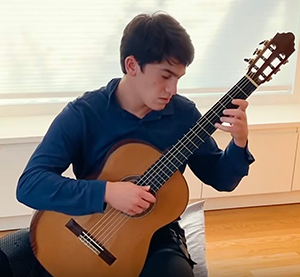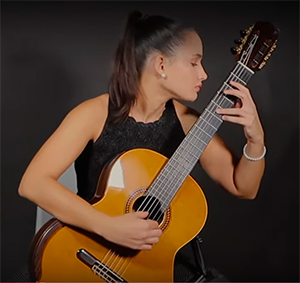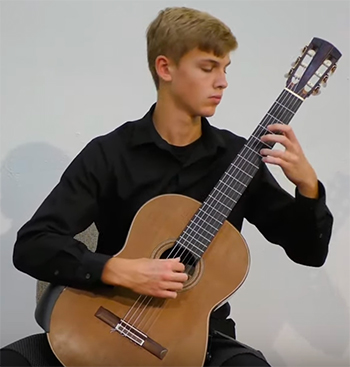by Daniel Hathaway

The finals of the James Stroud Competition for high school students 14-18 began and ended in Mixon Hall at the Cleveland Institute of Music on Friday, October 16. The founder introduced the four remaining contestants before their pre-recorded performances, and awarded cash prizes afterward. Then, as though on a Google Earth quest, watchers were swept away to Austin, Miami, Bloomington, and San Jose to hear one-take, 20-minute sets of works selected by the contestants. The Competition was held in cooperation with the Cleveland International Classical Guitar Festival.




Although the final round videos were homemade, the contestants and their technical assistants (usually a parent or two) did a fine job of staging and lighting them, and the sound quality was uniformly excellent.
At the end of the evening, the panel of judges — Stephen Aron, Mark Delpriora, Matteo Mela, Lorenzo Micheli, Nigel North, Marco Sartor, and Jason Vieaux — reported their decision, and James Stroud announced the order of winners. First Prize went to Aytahn Benavi ($10,000), Second Prize to Eric Wang ($5,000), Third Prize to Patricia Hernandez ($2,500), and Fourth Prize to Ian Tubbs ($1,250). Stroud also awarded a special $500 prize to Hernandez as the finalist who had shown the most improvement over the course of the contest. The final round performances can be viewed here.
Published on ClevelandClassical.com October 20, 2020
Click here for a printable copy of this article


